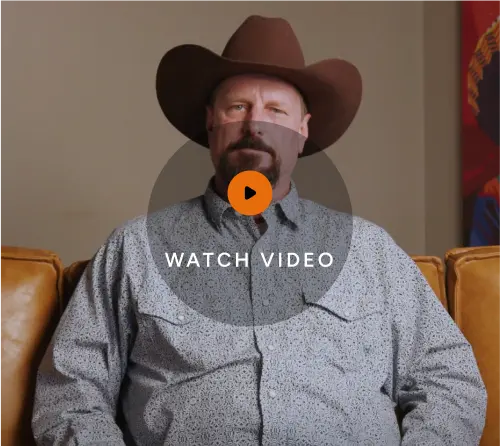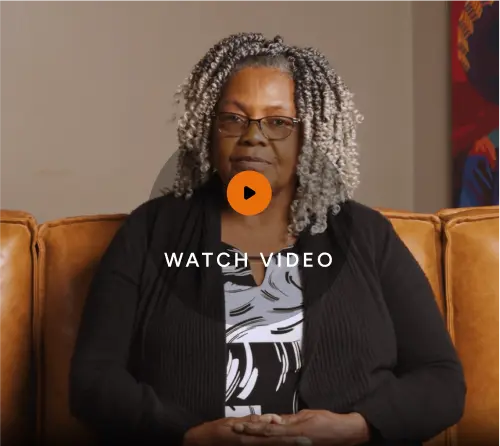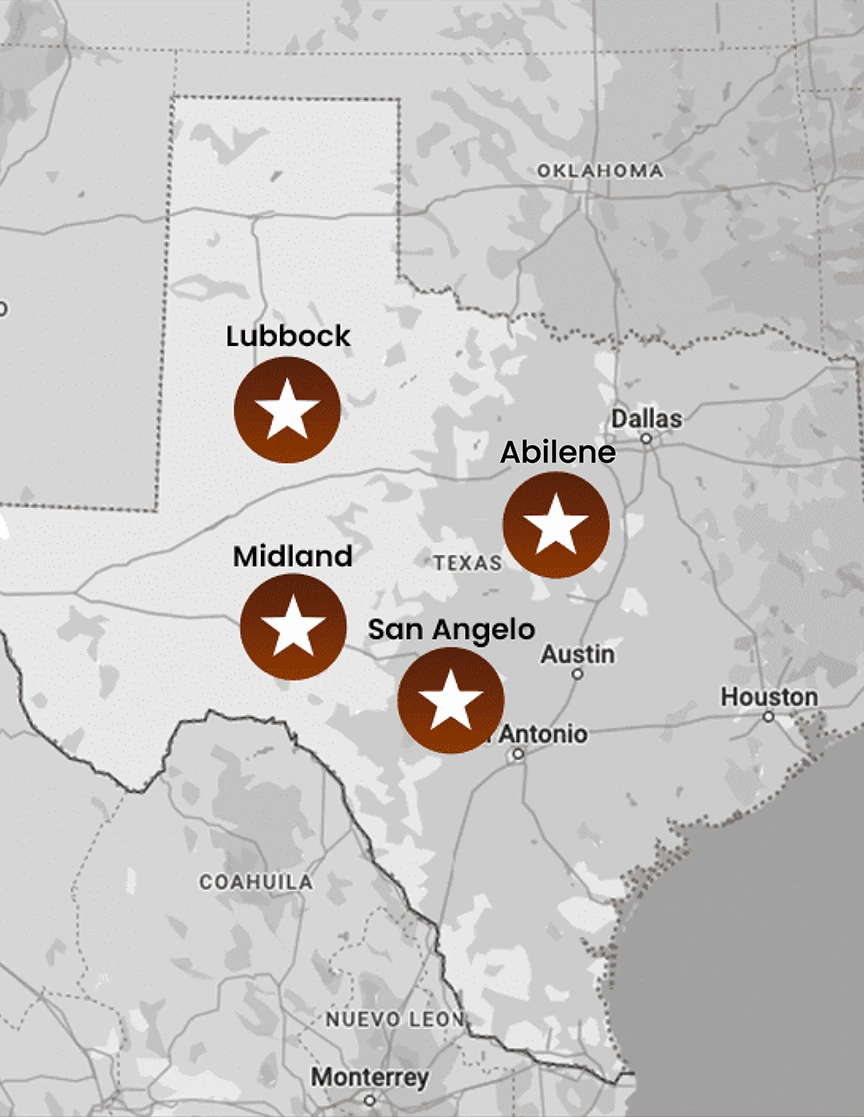The average wrongful death settlement for car accidents in Texas typically ranges between $500,000 and $1 million, though some cases have reached upwards of $10 million, depending on the circumstances.
Several factors can influence the payout in a Texas wrongful death settlement, including:
- Age of the deceased
- Number of dependents
- Medical and funeral expenses
- Lost income and benefits
- Pain and suffering
- Liability and fault
These factors work together to determine the final settlement amount in a wrongful death case. Families considering legal action should consult with a qualified wrongful death attorney from our firm to assess their specific situation and maximize the potential recovery.

Need help with compensation for a death in a car accident in Texas?
Losing a loved one in a car accident is devastating, and pursuing the compensation you deserve shouldn’t add to the burden. Our experienced team can guide you through the wrongful death claim process, ensuring you get the support and justice your family needs.
We operate throughout West Texas, providing compassionate and dedicated legal help.
We have an Abilene wrongful death lawyer available for a free consultation and a sympathetic ear at this difficult time
Average payout for a car accident death in more detail
The final settlement amount depends heavily on the specific circumstances of each case, including the insurance coverage available, the deceased’s earning potential, and other relevant factors.
A more detailed breakdown of potential payouts often includes:
| Factor | Average Range of Compensation |
|---|---|
| Insurance Coverage Limits | $30,000 to $60,000 (minimum policy limits) to $1 million or more with commercial policies. |
| Lost Wages and Future Income | Varies widely, ranging from hundreds of thousands to millions based on the deceased’s age, profession, and potential future earnings. |
| Pain and Suffering | $100,000 to $1 million+, depending on the extent of suffering before death and the impact on surviving family members. |
| Medical and Funeral Expenses | Up to $50,000 or more, covering emergency care, ongoing medical treatment, and burial costs. |
| Punitive Damages | Up to several million dollars in cases involving gross negligence, such as drunk driving. |
These factors significantly impact the final payout families may receive after a fatal car accident. Combining economic damages (like lost wages) and non-economic damages (such as pain and suffering) helps determine the settlement amount.
Consulting with an experienced wrongful death attorney can ensure that all elements are considered for a comprehensive claim.
Who can file a claim for a Texas fatal car accident?
In Texas, the right to file a wrongful death claim after a fatal car accident is limited to specific family members under Texas law. According to Chapter 71, the following individuals are permitted to file a wrongful death claim:
- Spouse of the Deceased: This applies to both legally married spouses and common-law spouses in Texas, provided the common-law marriage can be legally proven.
- Children of the Deceased: Biological children, adopted children, and adult children can file a wrongful death claim for their parent’s loss. However, stepchildren do not hold the same right under Texas law unless they have been legally adopted by the deceased.
- Parents of the Deceased: Both the mother and father of the deceased are eligible to file a claim, seeking compensation for the loss of their child. This right extends to biological parents and, in certain cases, adoptive parents as well.
These eligible family members may choose to file individually or collectively in a joint claim. However, if none of these family members initiates a wrongful death claim within three months of the individual’s passing, the personal representative or executor of the deceased’s estate may bring the claim instead.
This approach allows Texas to ensure that only the closest family members, or a designated representative, have the authority to seek compensation for the tragedy of a wrongful death due to a car accident.
Elements needed to establish whether you have grounds for a claim
- Duty of Care: The first element involves proving that the defendant owed a duty of care to the deceased. In a car accident case, this means showing that the responsible party had a legal obligation to act to prevent harm to others. For example, all drivers have a duty to follow traffic laws and drive safely to protect other road users.
- Breach of Duty: After establishing that a duty of care existed, it must be shown that the defendant breached this duty. A breach occurs when the responsible party fails to act according to the standards expected, such as speeding, running a red light, or driving under the influence. This failure to uphold their duty can constitute negligence, which is necessary for establishing liability in a wrongful death claim.
- Causation links the defendant’s breach of duty directly to the death of the individual. It must be demonstrated that the defendant’s actions were not just a contributing factor but the primary cause of the fatal outcome. For instance, if a driver’s reckless behavior directly led to a car accident that resulted in death, this element is met. Without establishing a direct connection between the breach and the death, the claim may not succeed.
- Death: The occurrence of death must be evident and documented. This may involve providing a death certificate and medical records that confirm the cause of death as a result of the incident. In the context of a car accident claim, it is necessary to show that the injuries sustained during the crash led to the individual’s death.
- Damages: Finally, the claim must demonstrate that the death caused quantifiable damages to the surviving family members or the deceased’s estate. Damages can include medical expenses incurred before death, funeral costs, loss of financial support, and non-economic damages like loss of companionship or emotional suffering.
We have a Midland wrongful death lawyer available to help confirm if the above elements are in place after the sad loss of your loved one
Find out moreWho could receive the compensation in a wrongful death case?
In a wrongful death lawsuit in Texas, specific family members or representatives of the deceased’s estate may be eligible to receive compensation:
- Surviving Spouse: The surviving spouse of the deceased is typically the primary individual eligible to file a wrongful death claim in Texas. They are entitled to compensation for the financial and emotional loss resulting from the death of their partner, such as loss of companionship and future financial support. Settlements in Texas often consider the spouse’s long-term needs, especially if the deceased is the primary breadwinner.
- Children of the Deceased: If the deceased has surviving children, they are also eligible to pursue a wrongful death lawsuit in Texas. Both minor and adult children can seek compensation for the emotional suffering, lost guidance, and financial support they would have received. The amount of compensation often reflects the age of the children and the potential earnings the deceased would have contributed over time.
- Parents of the Deceased: In the absence of a spouse or children, the parents of the deceased may file a wrongful death claim in Texas. They can seek compensation for the emotional distress and loss of support caused by the untimely death of their child. The average wrongful death settlement amount can vary significantly based on the circumstances surrounding the case and the role of the deceased in supporting their parents.
- Estate Representative: If no immediate family members are available to file a claim, the estate’s representative can pursue a wrongful death lawsuit on behalf of the deceased’s estate. In this case, any settlement or compensation awarded may go to the estate, which then distributes the funds according to the deceased’s will or state inheritance laws. The estate representative can also recover compensation for medical bills, funeral expenses, and other costs related to the death.
If you die in a car crash, does your family get money?
If you die in a car crash, your family may be eligible to receive compensation through a wrongful death claim. This includes damages for lost income, funeral expenses, medical bills, and emotional losses.
The amount depends on the at-fault party’s insurance coverage and the deceased’s earning potential. Compensation aims to support the financial and emotional well-being of those who depend on the deceased.
Maximizing car accident death compensation in Texas
To help maximize the wrongful death compensation following a fatal car accident, the family of the deceased can take several proactive steps:
- Gather Evidence Immediately: Collect and preserve all available evidence from the accident scene, including police reports, photos, witness contacts, and any video footage (e.g., dash cams or surveillance cameras). This evidence is vital in establishing fault and supporting the claim.
- Hire an Experienced Wrongful Death Attorney at Keith & Lorfing: Engaging a skilled attorney with our experience in wrongful death cases is vital. We can help with evidence collection, negotiations, and legal strategy, ultimately working to maximize the settlement.
- Keep Records of All Expenses: Document all costs associated with the accident and loss, including medical bills, funeral and burial expenses, and any other costs incurred as a result of the death. Detailed records can help show the financial impact on the family.
- Document Emotional and Financial Impact: Keep a journal or log of the emotional toll and any lifestyle changes caused by the loss, including missed work, therapy expenses, and daily hardships. Descriptions of the emotional and financial impact can strengthen the case for non-economic damages.
- Seek Professional Grief Counseling: Getting counseling or therapy can not only support the grieving process but also serves as documentation of the emotional toll taken by the loss, which can be included in the non-economic damages claim.
- Establish a Timeline of the Deceased’s Contributions: Compile evidence of the deceased’s role in the family, including financial contributions, caregiving, and emotional support. This timeline can demonstrate the full extent of the loss and help calculate the loss of companionship and support.
- Understand and Identify All Potential Liable Parties: Ensure that all potentially liable parties (such as other drivers, companies, or even manufacturers in case of a defective vehicle) are identified, as this can broaden the scope of the claim and increase the chances of full compensation.
- Seek Punitive Damages Where Applicable: If the accident involved gross negligence or reckless behavior (e.g., drunk driving), punitive damages may be available. A skilled attorney can help argue for punitive damages as a way to seek additional compensation.
- Avoid Settling Too Quickly: While it may be tempting to accept the first offer, it’s often beneficial to avoid quick settlements. This allows time for thorough investigation and helps ensure that the full extent of the loss is evaluated.
- File the Claim Promptly: Filing within Texas’s two-year statute of limitations for wrongful death claims preserves the claim’s validity. Prompt action also helps with preserving evidence and securing the maximum potential compensation.
We know this feels like a lot to take on while you are grieving, which is why our San Angelo wrongful death lawyers can do most of this on your behalf to ease the burden
Find out moreFactors that affect the car insurance payout for a death in Texas
To maximize compensation in a wrongful death settlement for a car accident in Texas, several critical factors come into play:
- Establishing Fault and Liability: Demonstrating that the other party was at fault and proving negligence or wrongdoing is essential. Solid evidence (e.g., accident reports, witness statements, and expert testimony) can strengthen the claim.
- Extent of Financial Losses: Documenting the financial losses resulting from the deceased’s death, including medical bills before passing, funeral and burial expenses, and loss of income or financial support.
- Non-Economic Damages: The emotional and psychological impact on surviving family members, such as loss of companionship, mental anguish, and the void left by the deceased, are all compensable non-economic damages that can increase settlement value.
- Loss of Inheritance: Potential inheritance that the deceased might have provided over their expected lifetime is considered. This factor applies when the deceased had dependents or was expected to leave behind a significant estate or assets.
- Insurance Policy Limits: The at-fault party’s insurance policy limits can cap the total available compensation. Understanding both parties’ policy limits is important to set realistic expectations, and we can investigate this for you.
- Punitive Damages: If the at-fault party’s actions were especially reckless or malicious (such as drunk driving or road rage), we can pursue punitive damages to further increase compensation.
- The Deceased’s Age, Health, and Life Expectancy: The deceased’s age and good health can increase a payout by showing a longer expected working life and continued support for their family. Poor health or advanced age may reduce potential lost earnings, as it implies fewer remaining years of contribution.
- Timely Filing of the Claim: Adhering to Texas’s two-year statute of limitations for wrongful death claims preserves the right to seek compensation; delays can jeopardize the claim.

Why a car accident death insurance payout can vary
Uninsured and Underinsured Motorist Coverage
For cases where the at-fault driver is uninsured or underinsured, Uninsured/Underinsured Motorist (UM/UIM) coverage can offer additional compensation, though it must be included voluntarily in the policy.
This coverage is not mandated by Texas law but provides extra security, as it compensates victims when the at-fault driver’s coverage is lacking or absent.
In cases of severe injury or death, families may benefit from having UM/UIM coverage to bridge the gap, especially when pursuing claims for wrongful death, as it can be challenging to recover adequate funds solely through a minimum liability policy.
Insurance Policy Limits
In Texas, drivers are legally required to carry minimum liability insurance, which includes $30,000 for bodily injury per person and $60,000 per accident if multiple individuals are injured or killed, along with $25,000 for property damage.
These minimums, often referred to as “30/60/25” coverage, may be insufficient in a fatal accident, as medical costs, lost wages, and the value of a life lost can easily exceed these limits.
We’ll get you the maximum wrongful death compensation you deserve
At our law firm, we understand how challenging it can be to handle a wrongful death lawsuit after losing a loved one in a car accident. Our goal is to secure the maximum settlement amount for your wrongful death claim in Texas.
From assessing the average settlement to calculating recoverable damages, we’re ready to guide you every step of the way. A wrongful death lawsuit in Texas involves many tough elements, including economic losses, non-economic damages, and potential punitive damages.
We work tirelessly to ensure you and your family receive fair compensation for the loss of your loved one, including additional damages for pain, suffering, and future financial needs.
Contact a Lubbock wrongful death attorney at Keith and Lorfing today for a free consultation
Find out moreFinal points on the average settlement for car accident death in Texas
The average wrongful death settlement in Texas varies depending on factors like liability, recoverable damages, and insurance limits. Pursuing a wrongful death claim or wrongful death lawsuit after losing a loved one requires understanding the settlement amount and potential compensation.
- The average wrongful death settlement amount can vary widely, depending on the circumstances of the wrongful death case.
- Factors such as the at-fault party’s liability, insurance policy limits, and the amount of financial recovery play a large role in determining the settlement in Texas.
- Consulting with a lawyer as soon as possible helps ensure that you meet all legal deadlines, such as the two-year statute of limitations, and strengthens your case for maximum recovery.
FAQs
How is pain and suffering calculated in a car accident in Texas?
Pain and suffering in Texas car accident claims are calculated using the multiplier method or per diem method. The multiplier method multiplies actual damages by a number between 1.5 and 5 based on injury severity. The per diem method assigns a daily rate for each day of suffering until recovery.
Additional factors, such as the extent of medical treatment, the duration of recovery, and the overall impact on the victim’s life, can influence the final calculation. Courts and insurance adjusters review documentation like medical records and personal testimony to arrive at a fair settlement amount for pain and suffering.
What is the cap on wrongful death in Texas?
Texas limits non-economic damages in medical malpractice wrongful death claims to $250,000 per provider, with a total cap of $500,000. However, there is no cap for other wrongful death claims, allowing families to seek full compensation for economic losses like lost wages and medical expenses without restriction.
For wrongful death claims outside of medical malpractice, families may recover full compensation based on the circumstances, including punitive damages if gross negligence is proven.
Consulting with a wrongful death lawyer from our firm is key to understanding how these caps might apply to a particular claim and securing the best possible outcome.
How long do you have to sue for wrongful death in Texas?
You have two years from the date of death to file a wrongful death lawsuit in Texas. This deadline is strict, with only a few exceptions, such as cases involving minors or if the cause of death was concealed, which might extend the time limit.
It’s best to begin the process as early as possible to ensure proper evidence gathering and to avoid complications with the statute of limitations. Missing this deadline generally results in losing the right to pursue compensation, so timely action is essential.




